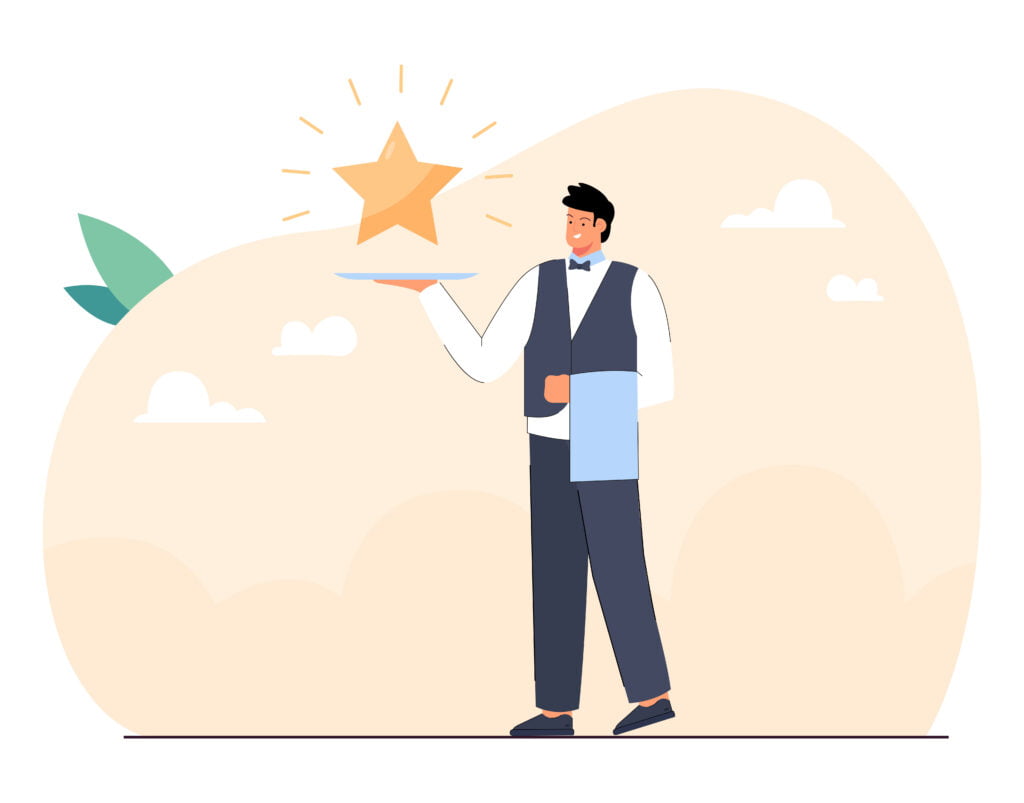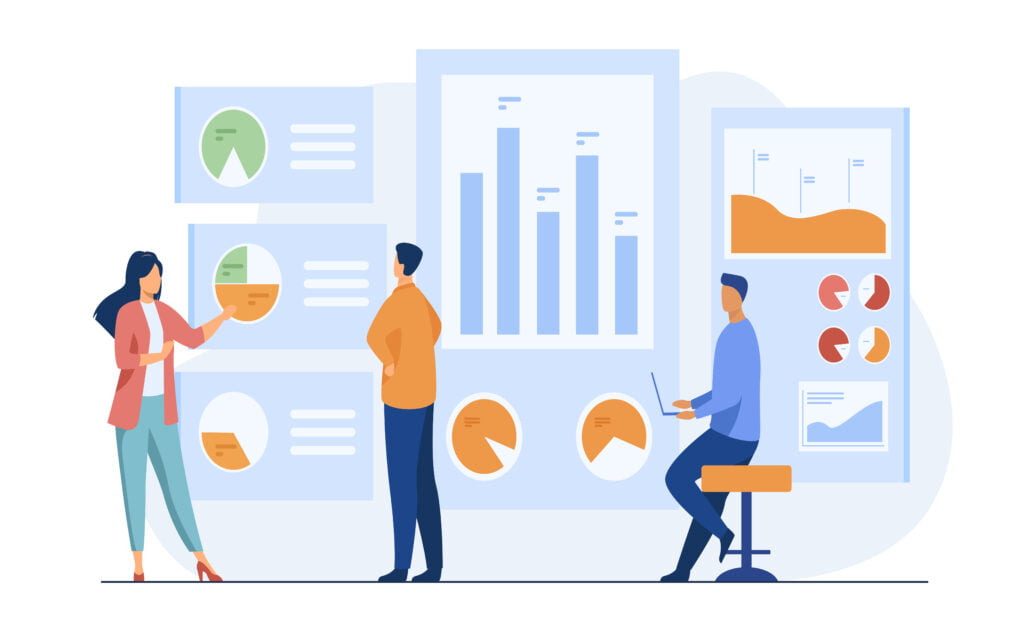Charity CRMs are marketed as essential IT infrastructure once a charity reaches a certain size, where managing things in spreadsheets and emails is no longer practical or secure enough. CRMs (Customer Relationship Management tools) allow charities to automate manual tasks, track campaign performance easily all whilst keeping donor data safe and secure. Still, many nonprofits don't know about all the good things a CRM can offer.
At Giving Analytics we integrate data from a wide variation of CRMs, as well as directly with databases or CSV files. We've noticed that many smaller charities don't want to use a CRM system because they think it's only useful for big organisations, and many big charities are reluctant to move to a new technology because of the huge costs involved with moving from legacy systems. Ultimately we think all charities should have some form of CRM - acting as a golden source of truth for data-driven decision making. Here's why:
Better decision-making

A CRM system is a place to store all sorts of information in one spot. For charities, this means all information about donations, supporters, fundraising, events and more can be gathered and found in one place.
Nonprofits usually have lots of different bits of information that can get messy and hard to handle. They often keep separate spreadsheets and files, and use many different systems. But this can get chaotic fast.
Using a CRM gets rid of the need for keeping information in different places and makes it easier to handle. This way, charities can make better choices about fundraising, events, marketing and talking to people because they have all the information they need right in front of them.
Ask yourself: how much of your donations come from the largest 25% of donors? Can you answer this question easily using your current technology infrastructure?
Saves time
One big difference between nonprofit groups and big private businesses is that charities rely a lot on part-time workers and volunteers. Using this limited resource to its maximum benefit means reducing the amount of manual admin tasks that need to be done.
Without meaning to, charity workers can often be found using up their limited time on jobs that could be done automatically with a CRM. Manual data input, sending lots of emails and reporting can be made quicker and easier with a CRM. This means they can spend more time on the creative jobs to help the charity do well.
Ask yourself: how much time is spent doing admin that could be automated? What could your charity do if those employees and volunteers now had that time to spare?
Manage donations
Charities need money from many places like one-time and ongoing donations, fundraising events, grants and online sales. It's safe to say that keeping track of all this money can get hard, especially as a charity gets bigger.
CRMs let nonprofits make this process easier by storing and sorting all of this information. Once sorted, you can see clearly how your income is generated - which lets you find your most successful fundraising ways and spot where you can do better.
Ask yourself: do you know which events or campaigns are generating the most income? Do you know if the majority of this income is coming from existing or new donors? Would it be useful to see your JustGiving donations integrated with your website's donations, so you could see a total overview of your fundraising campaigns?
Give a personal service

Charities do well with more support, and people usually respond better to personal service and talking. If you really want to make the most of your fundraising efforts and keep your supporters interested, making them feel important should be your main goal.
Using a charity CRM system can change the way you talk to your supporters. Keeping information on your donors in one spot means you can easily create personalised messages to each person or business, by segmenting based on demographics, geography or RFM scores (behaviour). By having access to their donation history, how they've interacted with your charity and any past events they have supported, you can create a communication strategy that focuses on their interests and aims to keep them with you.
A modern charity CRM will let you automate most of these messages - from thanking them for their donation to letting them know about a fundraising event they might be interested in.
Ask yourself: do you send the same email to a donor that has made a £1,000 one-off donation to you, as another that donates £10 a month? How easy is it for you identify your largest donors that haven't donated recently?
Correct reporting

You can't improve something that you don't measure. Measuring success and planning for the future is very important for a charity, and this relies on correct data to get it right. Charity CRM systems come with lots of reporting capabilities that are quick and easy to access.
Anything that is tracked can be measured, and this means that data can be gathered on everything from donations and supporters to event attendance and hours worked by volunteers. This type of information is key for trustees and people involved and can be created on demand with a CRM system.
Ask yourself: how easy is it to work out how one quarter's income compares to another?
Safety and compliance
For charities, following data protection laws is very important. After all, you're collecting personal information on your supporters so it's vital that this is kept safe - which is something that a locally hosted spreadsheet can't guarantee.
By using a CRM, you're ticking all the boxes in compliance and safety which protects not only you as an organisation but also your supporters. Data can easily be found and managed, but also deleted when asked which reassures your supporters and follows GDPR.
Ask yourself: do you know who has access to your donor list? What safeguards do you have in place for securing your user accounts or sensitive data? Do trustees or fundraisers have access to data that they do not need?
Keeps teams connected
Teamwork is very important for charities, but this can break down between teams if processes aren't good or don't exist and workers are left to figure things out by themselves.
Using a CRM is the best way to bring order and structure to a charity, and ensures that each team is connected. Having one central hub improves working together between teams, not just to increase their efficiency on an individual basis but also to make sure all messages from different teams are based on the same information and are therefore more consistent.
As a charity gets bigger, it can be harder to keep everything together. From research and funding to services and volunteering, all teams need to work well together to keep things running smoothly.
Ask yourself: are your relevant policy documents or creative assets easily accessible? Are you using personal email addresses or cloud storage accounts to store donor information?
Choosing a charity CRM system
There's no one-size-fits-all solution when it comes to choosing a charity CRM system. Different nonprofit groups have different priorities, and it's important to choose a solution that fits your needs. Don't feel pressured into selecting systems that really stretch your budget. Think about how much it'll cost you to integrate your donations platform/finance systems, maintain and make changes once it's set up.
Remember not all CRMs will have the features you need, but most of them have integrations with 3rd party apps that can really enrich specialist functionality. Giving Analytics is one such app - it connects to CRMs (or even CSV exports) to give you the latest analysis and AI features, regardless of how clunky or basic your CRM is.

